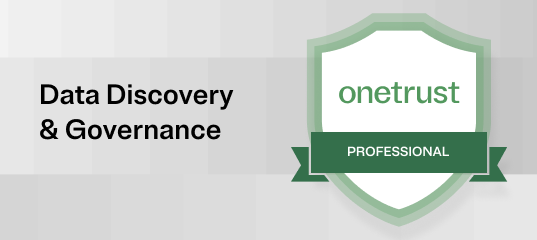On November 16, 2022, the European Financial Reporting Advisory Group (EFRAG) approved the updated versions of the European Sustainability Reporting Standards (ESRS). The standards outline requirements for detailed corporate reporting on a broad range of environmental, social, and governance (ESG) issues. The new standards are part of Europe’s Corporate Sustainability Reporting Directive (CSRD) which was approved on November 28. The CSRD is expected to enter into force for reporting year 2024, with first submissions due in 2025. It aims to strengthen sustainability reporting requirements under the existing Non-Financial Reporting Directive (NFRD) to improve corporate accountability, as well as the quality, consistency, and comparability of information disclosed.
"For the first time…we are putting sustainability reporting on equal footing with financial reporting. And this is hugely significant. We need accurate and reliable information to ensure investments are being made towards a more sustainable future. Companies need the information to plan their transition plans. And investors need the information to have clarity about what they’re investing in and to combat greenwashing."
– European Commission
What’s EFRAG?
EFRAG was established in 2001 by the European Union (EU) and the private sector to provide technical advice to the European Commission on accounting matters. It was also charged with providing input into the development of IFRS sustainability standards. Its mission is to serve the European public interest by developing and promoting European views in financial and sustainability reporting. On April 21, 2021, as part of the European Green Deal, the EU adopted the initial CSRD proposal, which would amend the existing reporting requirements under the NFRD. The proposal appointed EFRAG as the technical advisor to the Commission responsible for developing the European Sustainability Reporting Standards (ESRS).
“High quality and reliable public reporting by companies will help create a culture of greater public accountability.”
– European Commission
What are the European sustainability reporting standards?
On April 29, 2022, EFRAG released initial exposure drafts of the ESRS and opened a 100-day public consultation period that closed on August 8, 2022. The initial exposure drafts outlined reporting requirements across 13 ESG issues. The 13 ESG issues were categorized into four areas as follows:
- Cross-cutting:(ESRS 1) General principles; (ESRS 2) General, strategy, governance, and materiality assessment.
- Environment:(ESRS E1) Climate change; (ESRS E2) Pollution; (ESRS E3) Water and marine resources; (ESRS E4) Biodiversity; (ESRS E5) Resource use and circular economy.
- Social:(ESRS S1) Own workforce; (ESRS S2) Workers in the value chain; (ESRS S3) Affected communities; (ESRS S4) Consumers and end-users.
- Governance:(ESRS G1) Governance, risk management, and internal control; (ESRS G2) Business conduct.
Key things that were considered during initial development of the ESRS include:
- They take existing European law and initiatives into account such as the March 2018 EU action plan financing sustainable growth, Sustainable Finance Disclosure Regulation (SFDR), EU Taxonomy Article 8, the Benchmark Regulation, the GHG allowance Directive, CSRD, and more.
- Lessons learned and best practices from European and other international standards and frameworks were considered, including those from NFRD, GRI, IFRS, SEC, TCFD, and more.
- They are designed to ensure that sustainability information is reported in accordance with CSRD, can be easily navigated, and has maximum comparability across sectors while allowing flexibility for sector-specific information.
- Audited assurance of reported information will be required.
- Companies will have to prepare the information in a digital format that is machine readable and tagged, so it can be fed into the EU single access point envisioned in the capital markets union action plan.
What were the findings from the ESRS consultation period?
During the 100-day consultation period, EFRAG received feedback from a broad variety of stakeholders, primarily through a two-part online survey. Stakeholders could also submit position papers with or separately from survey responses. According to the consultant who analyzed the feedback, there were 702 responses to the surveys and 298 unique position papers submitted.
Common themes from the survey responses included:
- Time and cost for collecting data: Strong reservations from the business community about their ability to comply with the ESRS due to human and financial resources that will be required to collect the data at the required level of granularity.
- Value chain approach: Respondents called out specific concerns around the double materiality approach and granularity requirements, particularly as they relate to gathering information along a broadly defined value chain.
- Alignment with global standards and policies: To reduce the reporting burden and ensure that disclosure requirements do not exceed the legal basis, ensure that the ESRS is aligned with widely accepted global standards (ISSB IFRS, GRI), disclosure requirements (the final CSRD), and metrics (15 categories for Scope 3 GHG emissions).
- Criticism of rebuttable presumption concept: Respondents said this concept undermines materiality judgements, is not stipulated in the CSRD, causes information overload, and raises debates on what was rebutted.
- Definitions too vague: The definition of stakeholders that need to be engaged/consulted is too broad. Key terms also need to be clarified because they may differ from standard accounting practices (materiality, value chain) or common definitions (circular business model) do not yet exist.
- Assurance challenges: Respondents were concerned that some of the disclosed information, particularly data from further along the value chain, will not be verifiable by auditors.
Have the ESRS been updated to reflect the feedback?
Based on the feedback received during the consultation period, some of the changes made to the ESRS include:
- A higher scope of materiality assessment will eliminate the need to justify and explain the omission of specific information under the rebuttable presumption.
- To reduce the time and cost for collecting data, the number of disclosure requirements was reduced from 136 to 84 and the number of datapoints has been reduced from 2,161 to 1,144. Phase-in periods were also introduced for several disclosure requirements, and some requirements will be moved to future sector specific standards.
- One of the initial 13 standards (ESRS G1) was eliminated to align with the CSRD.
- The approach to the value chain was clarified with a specific focus on materiality of the value chain information. A phase-in period was introduced for value chain information, which also aligns with the CSRD.
EFRAG’s cover note for the ESRS approval outlines specific changes that were made to each ESRS.
What will the EFRAG sustainability reporting standards mean for businesses?
Companies covered by the new rules will have to use the ESRS to disclose how sustainability is embedded across the business and how material ESG impacts, risks, and opportunities are identified and managed. This includes policies, targets, action plans, and performance measurement metrics. More details on what will be required are available in the updated versions of the ESRS across the four areas:
- Cross-cutting:(ESRS 1) General requirements; (ESRS 2) General disclosures.
- Environment:(ESRS E1) Climate change; (ESRS E2) Pollution; (ESRS E3) Water and marine resources; (ESRS E4) Biodiversity and ecosystems; (ESRS E5) Resource use and circular economy.
- Social:(ESRS S1) Own workforce; (ESRS S2) Workers in the value chain; (ESRS S3) Affected communities; (ESRS S4) Consumers and end-users.
- Governance:(ESRS G1) Business conduct.
ESRS sector-specific standards are also under development and expected to be adopted by 2024.
Which companies will the EU sustainability reporting standards apply to?
Under the new CSRD rules, approximately 50,000 EU businesses will be required to provide ESG disclosures using the ESRS. This includes all large companies and all listed companies (except listed micro-enterprises). This is more than 4x the number of companies (approximately 11,700 organizations) currently required to provide non-financial reporting under NFRD. According to the European Commission, the reason for the expansion is to ensure “that all large companies are publicly accountable for their impact on people and the environment. It also responds to demands from investors for sustainability information from such companies.”
Drive ethical compliance in your organization
To navigate today’s complex regulatory environment, robust ethical practices are essential. The OneTrust Ethics Program Management solution offers powerful tools to develop these practices within your company. Our solution facilitates the effective management of ethics policies, comprehensive training programs, and detailed compliance reporting, helping ensure your operations align with both legal requirements and your corporate values.
Learn how our Ethics Program Management solution can support your journey toward enhanced ethical compliance and integrity.














